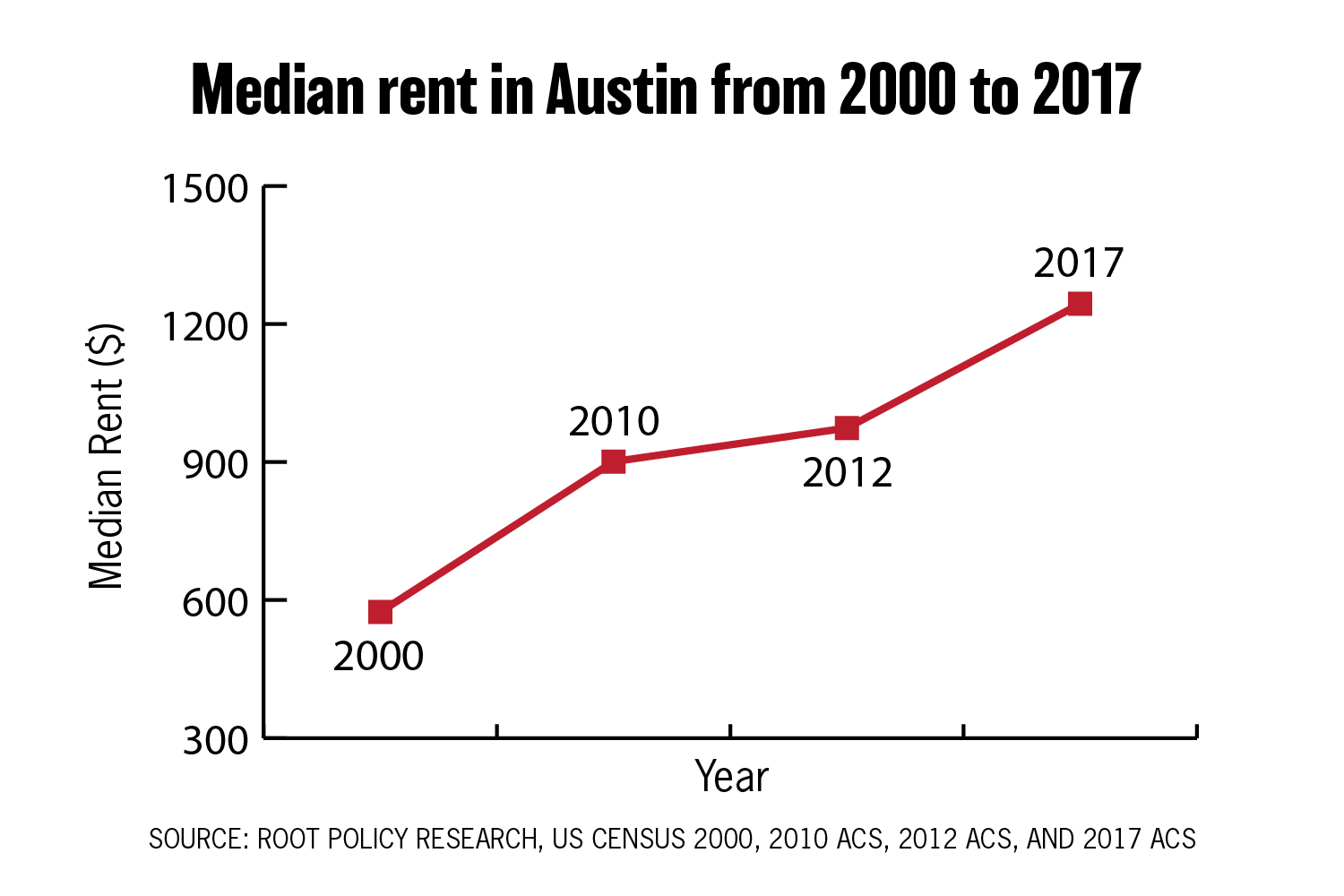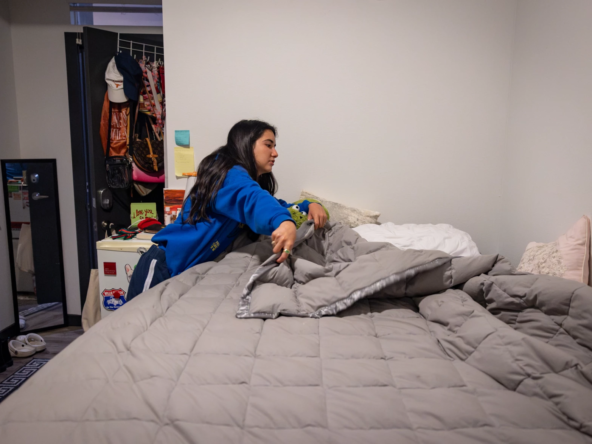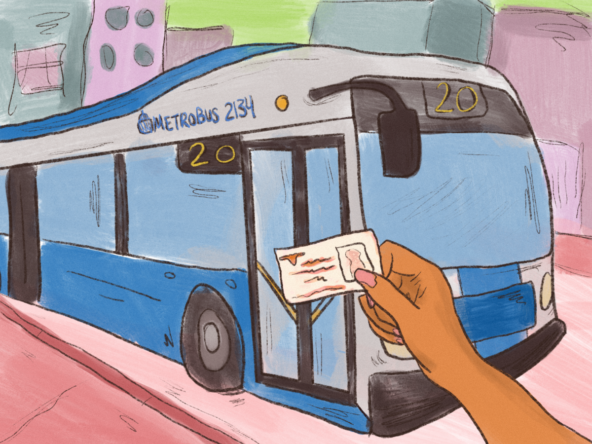The UT President’s office gave out four $25,000 grants this semester to faculty members studying affordable housing in the Austin community.
The University awarded the Faculty Innovation Grants to staff members Jake Wegmann, Elizabeth “Becky” Pettit, Ming Zhang and Elizabeth Mueller. Each grant recipient is partnering with organizations outside of UT to study a specific aspect of affordable housing.
Wegmann, director of community and regional planning in the School of Architecture, is partnering with the Alley Flat Initiative to study how supporting Alley Flat units reduce displacement in Austin. Alley Flat units, or Accessory Dwelling Units, are small housing units that homeowners build on their property for an additional source of income, Wegmann said.
Wegman said the grant will “come up with a better process” to assist homeowners in developing Alley Flat units.
“ADUs are no longer unusual in Austin, … so there are lots of architects who can help you design your ADU,” Wegman said. “The role that is arguably more important is, rather than us as the nonprofit stepping in and being the architect, it’s more like being what you might call an owner’s representative … helping guide the homeowner all the way through this complicated process.”
Wegmann said his team plans to walk through the process of creating an Alley Flat with three Austin homeowners and document the process to identify problems that may arise and better understand how to expand the Alley Flat Initiative in the future.
Sociology professor Pettit is partnering with Building Promise USA to research the barriers to affordable housing that citizens face when reentering society after incarceration.
“One of the really important dimensions of life after incarceration is finding stable housing,” Pettit said. “This grant … is to help us better understand the challenges and opportunities (of) securing stable housing after incarceration in the Austin area.”
Reginald Smith, founder of BPUSA, said that secure housing is the first necessity for people reentering society to be successful.
“Hopefully this grant money from UT for housing will help us determine the best strategies for building housing or making housing more accessible to people with justice involvement,” Smith said. “Hopefully we can look at how the city can lower those challenges and barriers for folks.”
Ming Zhang, a professor of community and regional planning, is studying Equitable Transit-Oriented Development to develop a planning tool for the city of Austin.
“What I’m trying to do is develop an Excel-based planning support tool so that we can explore different land use planning alternatives,” Zhang said. “One of (our) main goals is (to) provide more support (for) affordable housing in the Austin area, in particular along the proposed rail transit lines.”
Mueller, associate professor of community and regional planning, is researching the relationship between housing conditions and health.
“I’m interested in learning more about the conditions that low income renters face,” Mueller said. “In particular, … how many people live in apartments that may be exposing them to health threatening conditions.”
Mueller said she is excited to see what comes of the other three research projects.
“I hope to talk to my colleagues about what they’re finding out as well,” Mueller said. “I think this is really important.”
Originally published March 22, 2022, in The Daily Texan
By Madeline Duncan
Graphic by Sophie Zhang




